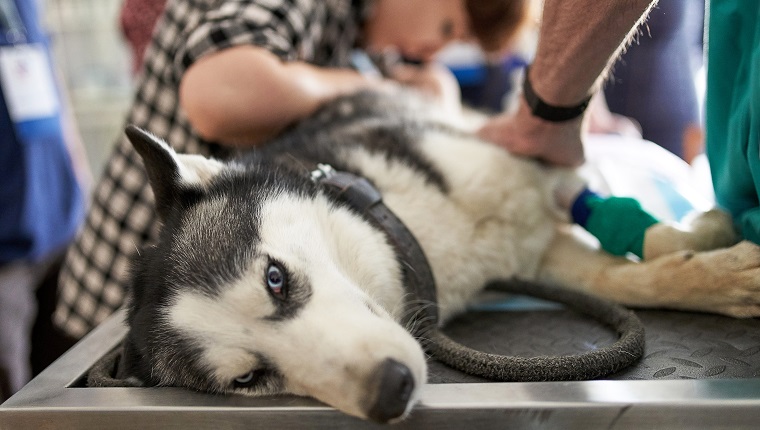Traumatic myocarditis in dogs is a condition that produces irregular heartbeats, known as arrhythmias, after a dog suffers from blunt trauma to the heart. This isn’t a common condition, but it is important that all dogs who experience physical trauma are monitored for it.
Most cases involve the trauma taking place within 48 hours of any symptoms occurring.
If you see signs that your dog might be suffering from myocarditis, then you must consult your veterinarian for a proper diagnosis and course of treatment. Here’s what you should know about the symptoms, causes, and treatments of traumatic myocarditis in dogs.
Symptoms Of Traumatic Myocarditis In Dogs
Traumatic myocarditis in dogs can result in a number of symptoms. Some of the most common symptoms include:
- Rapid heart rhythms
- Irregular heart rhythms
- Generally acting weaker than usual
- Gums turning pale
Causes Of Traumatic Myocarditis In Dogs

Traumatic myocarditis in dogs is most commonly caused by blunt trauma. Car accidents are a frequent cause. Some of the other causes include:
- Nervous system issues
- Lower than normal levels of oxygen in the blood
- Being physically abused by a human
- Imbalances in the body’s electrolytes
Treatments For Traumatic Myocarditis In Dogs
If you suspect that your dog is suffering from traumatic myocarditis, then your veterinarian will want to carry out a full physical examination.
They’ll also ask detailed questions about any recent incidents or circumstances that might have contributed to the condition. This is because symptoms usually relate to an incident that took place within the previous 48 hours.
When forming a diagnosis, vets often order blood tests and urine tests, along with examining the levels of electrolytes in the body. They’ll also monitor the dog’s blood oxygen levels. In some cases, vets may use X-rays.
Vets often use fluid and oxygen therapies to treat dogs. If they discover the presence of pneumothorax, the vet will also address that issue. In extreme cases, vets may recommend surgery to fit a pacemaker in order to help keep the heart beating properly.
Has your dog ever suffered from trauma and developed myocarditis? What kind of accident caused the condition? Tell us all about it in the comments below.









